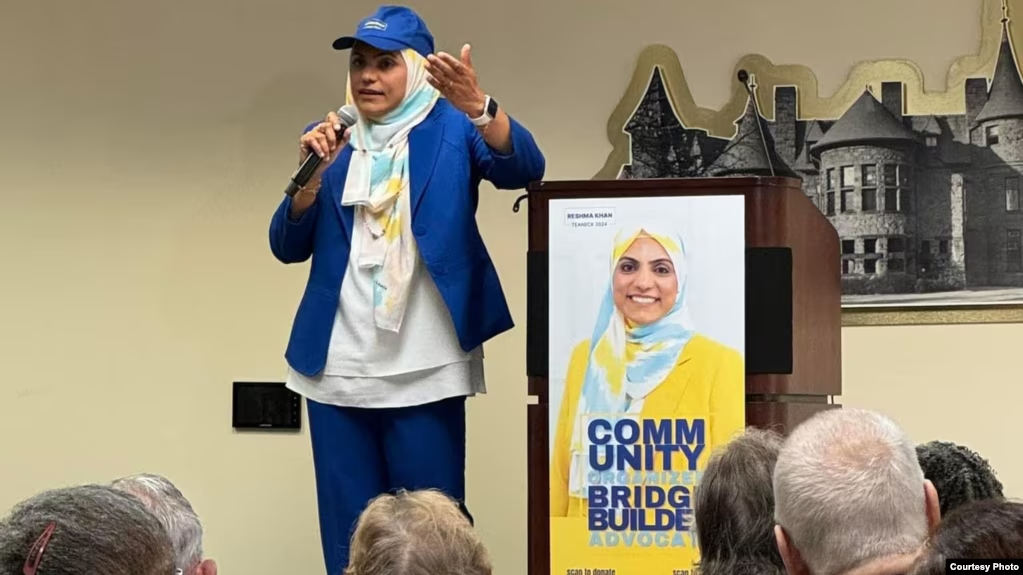
October 18, 2024 7:20 PM
WASHINGTON — Voice of America
As the United States prepares for a presidential election next month, the idyllic New York suburb of Teaneck, New Jersey, is gearing up for elections that reflect a broader trend in U.S. politics.
Two Muslim women are running for local office in Teaneck, a town of 41,000 residents with a significant Muslim population. They are among hundreds of Muslim candidates in local, state and federal elections around the country.
Teaneck once had a Muslim mayor but never a Muslim woman on its city council.
Reshma Khan, a longtime local activist of Indian origin and a council candidate, is aiming to change that.
“I don’t take that lightly,” Khan, 47, said in a recent phone interview from her makeshift canvassing base in Teaneck. “It’s one of great responsibility as a Muslim.”
Nadia Hussain, a Trinidadian American high school teacher, is the other Muslim candidate in Teaneck’s nonpartisan local elections. She is hoping to be the first Muslim woman elected to the local school board.
Khan and Hussain, two hijab-wearing, everyday working American moms, represent a growing trend of Muslim Americans seeking office, reflecting a larger national pattern of more diverse candidates.
“There is a saying that we have: ‘If you’re not at the table, then you’re on the menu,’ so engagement is a must,” Hussain said in an interview with VOA.
Muslims’ political engagement surges
The U.S. has roughly 3.5 million Muslims from diverse ethnic backgrounds. Though most vote Democratic, a growing number have leaned Republican in recent elections.
Muslim elected officials, once a rarity, have become increasingly common in recent years. This surge in political engagement is driven by a mix of factors, from a concern about Islamophobia to a desire for political representation, experts say.
“If voter turnout of American Muslims is any indication of further political participation, Muslims running for office seems to parallel that trend,” said Nura Sediqe, an assistant professor of political science at Michigan State University.
Some experts trace the surge of Muslim political engagement to 2018, when Ilhan Omar and Rashida Tlaib shattered glass ceilings by becoming the first Muslim women elected to Congress. Their success, coupled with that of numerous local candidates, ignited a wave of Muslim political activism.

Reshma Khan, a longtime local activist of Indian origin and a council candidate, is aiming to change that.
“I don’t take that lightly,” Khan, 47, said in a recent phone interview from her makeshift canvassing base in Teaneck. “It’s one of great responsibility as a Muslim.”






